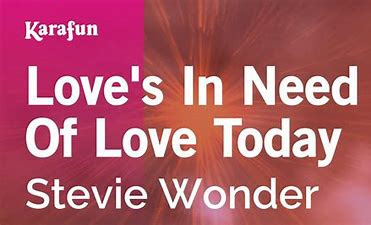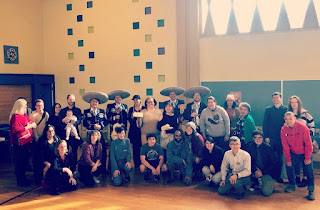Inverting the World through All Saints Eyeglasses
Amid
so much anxiety, today, we turn to All Saints’ Day in the church’s calendar.
All Saints’ Day usually recalls our communion with of our spiritual ancestors throughout
the centuries, celebrating our unity with saints as far away as North Africa in
the fourth century and as close as our deceased relatives. But All Saints’ Day
also reminds us of our bond with all believers in the here and now.
(Jim Wallis, “Ebola is an
Inequality Crisis”, Sojourners, 2014)
Many Christian churches mark Nov 1st as All Saints’ Day. Traditionally, the eight beatitudes, the Sermon on the Mount, are read on this day as well. With that in mind, I have recently been thinking about who saints are and whose deaths we mourn today.
The identities of saints, who they were and what they believed, is an interesting subject for me, because I grew up in the Korean Roman Catholic church. When I was young, we were given a “Christian name” by our parents or God-parents during our baptism. My baptismal name was Maria Angela. My aunt, who was my God-mother, loved a character called Angela in the book she was reading - that’s why she added Angela to my parents’ chosen Christian name for me, Maria. Later, I learned that I would be able to change that name to my own choice for my first confirmation. So, in Gr. 7, I chose Francesca Romana after reading her story in the book about Catholic saints. The reason I chose ‘Francesca’ was not a sacred one like my aunt’s. You see, there was a cute boy that went to my church. He always attended church wearing a very neat white polo shirt paired with crisply-ironed navy cotton pants, and his Christian name was Francesco. I loved the way ‘Francesco’ sounded, as well as his clean, sharp, rich image. In those days, everyone in the church called my dad Benedicto, and my mom Benedicta. My parents would introduce their children to other congregants – their daughter Maria Angela or Francesca Romana and my brother, Maximillian Colbe. Our names were very important.
By the time I was an older teen, the Korean Roman Catholic Church had committed to teaching their congregants about our homegrown Korean saints. The Korean Roman Catholic Church beatified 102 martyrs – including a lot of women who joined the church when the Bible and the teachings began to be secretly passed on from China in the 1800’s, professing their belief even when they were facing execution. After the inculturation movement in my youth, many Roman Catholic children in Korea were given Korean saint’s names as their ‘Christian’ name.
In the meantime, I learned that Protestant churches and their pastors called all congregants “saints” based on the theology that every believer is a saint – dead or not. I think of my maternal grandmother who “received” Jesus and learned the Bible from a missionary who visited her rural, hilly, isolated town in the southern Korean peninsula when she was a child. As most mothers did back then, she sacrificed her ambitions and raised all her children, her seven daughters and sons, to go on to higher education, persisting with strong faith and fairness. I would absolutely call her a saint. However, I am not sure that I would call the Elders in the church who stood up in the pulpit and offered prayers of the people condemning and cursing “homosexuals” before God and the churches and their leaders that promote those hating activities and words, “saints”.
I believe that if we commemorate All Saints Day as a venerable tradition, it is to ask together as a community who our saints are and whose deaths we mourn in our world today. In my life, I have mourned for those whom I have only met for a short period of time but who made such an impact on my life through a meaningful, soulful connection that I cried or felt deep sorrow upon the news of their death. On the other hand, I had some relatives whose deaths I did not really mourn in my heart. And, like you, I have mourned the death of people who died in tragic circumstances, because of injustice or violence, because of human rights violations and political corruption, even though I may not know them personally. We are called to acknowledge our ignorance, our inability to mourn those who died in other political, geographical or religious spheres because we do not know them well, or because we fear them, or because our media does not give us the whole picture of their lives. I believe that who are the saints and whose deaths do we mourn in our world today are sacred questions to ask.
As a religious minister, I have often had the
privilege and honour to remember and celebrate the lives of the departed with
their families and friends. When I meet with families for planning the memorial
service, some families may choose not to share too much about their family life
or about their parents, but families usually have a lot to share about their
parents. When the families are harmonious and close to each other, they are
happy that I listen to their stories and memories and that I am present with
them, letting them weep when they weep, laughing at the same time they laugh.
Usually for the families who are happy to share their reflections, the departed
one possessed those virtues that are named and blessed in today’s beatitudes.
Their beloveds were humble, (“poor in spirit”) able to share sorrow and show
kindness. They yearned for fairness and justice, extended welcome and
compassion, embraced joy both when it was easy and when it was difficult, and
encouraged actions and words that would bring peace. Every time I meet with
families to remember those who passed before us, I am humbled to learn that we
really cannot, from our own perspective, judge someone else’s life; that is
ultimately God’s job. Every life, everyone’s life, is worth celebrating, worth
remembering and worth mourning, no matter how they lived their life. The value
of each and everyone’s life is immeasurable. We celebrate and mourn all lives because
the “infinite-quality light” from God penetrates and flows in all of us, in all
matters. It’s dazzling.
It is important to
mention that “the poor in spirit”, “those who mourn”, “the meek,” “those who
hunger and thirst for righteousness”, “the merciful”, “the peacemakers”, “those
who are persecuted” are defined by social standing as much as by the spiritual
disposition that individuals possess. Jesus addresses these blessings to those
who are outside of the social protection and privileges of that time.
Ultimately and primarily, by proclaiming the Beatitudes, Jesus makes a promise
that, regardless of how this world fails them, God’s kin-dom, God’s
commonwealth, God’s steadfast love, will comfort and lift up those who are
faithful and benevolent. No matter how the world mistreats them, God will
ultimately be faithful.
We live in a world in which so many unholy priorities have been painfully and devastatingly evident, even continuing over the course of this pandemic. As a result, we have a great many more names and lives to remember on this All Saints Day. Especially those in the gray-spots such as senior’s care and also in hot spots - an “equality crisis” – in urban poverty. Our human nature may cause us to avoid those who are suffering, but the Beatitudes are an invitation from Jesus to model God’s blessing, align ourselves with God, and reorient our priorities to comfort and mourn with those who suffer.
We mourn when those we love have been lost. Even if we may not have a direct, personal connection we are able to raise awareness, extend our care and prayer, and mourn for those who are being hurt by the present situation of the world, whether in terms of health, or finance, or safety. Will we let ourselves feel the pangs of hunger for justice against the persistence of unrighteousness? Will we do the hard work of making real and holy peace?
Recently, my family received a parcel from Korea that we had been anticipating for weeks. My parents – Benedicto and Benedicta – made a care package of tasty stuff to comfort their grown-up child, me. A small bag of dried pollack (I can make a decent soup with it), a large bag of dried squid (Oh, you know the delicious treat for yourself with a good night snack) and 10 tiny bags of matcha green tea powder. But the main reason for them to pack these treats was to send eye-glasses for their grandson, Peace. Peace came downstairs, as soon as he heard the sound of my excitement from the kitchen. He opened the case and put on his new eyeglasses. And immediately he exclaimed, “Oh no, this can’t be right. Everything looks inverted! It’s making me dizzy!”
All Saints Day is, primarily and
ultimately, like wearing eyeglasses to see and appreciate the lives of all the
saints in today’s world with God’s inverted blessings – the beatitudes. To find
who today’s saints are is a dazzling adventure. The Christian tradition of All
Saints is not about Christening, giving baptismal names, writing about martyrs,
or preserving a day of sober quiet after the craziness of Halloween (perhaps
not in 2020). It is a day to wear the lenses that invert the present world, to
see the infinite-quality light of God’s desired world in the lives of all
saints, asking who the saints are in today’s world and whose lives we honour,
celebrate, truly lift up, and when they are lost, for whom we mourn.
Hymn: You Are Holy, You Are Whole by
Per Harling
https://www.youtube.com/watch?v=7f_6mL7-6m4








%5EJ%202023.jpg)
